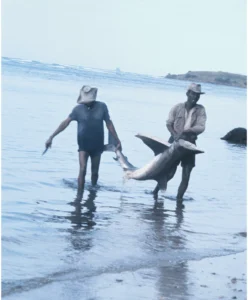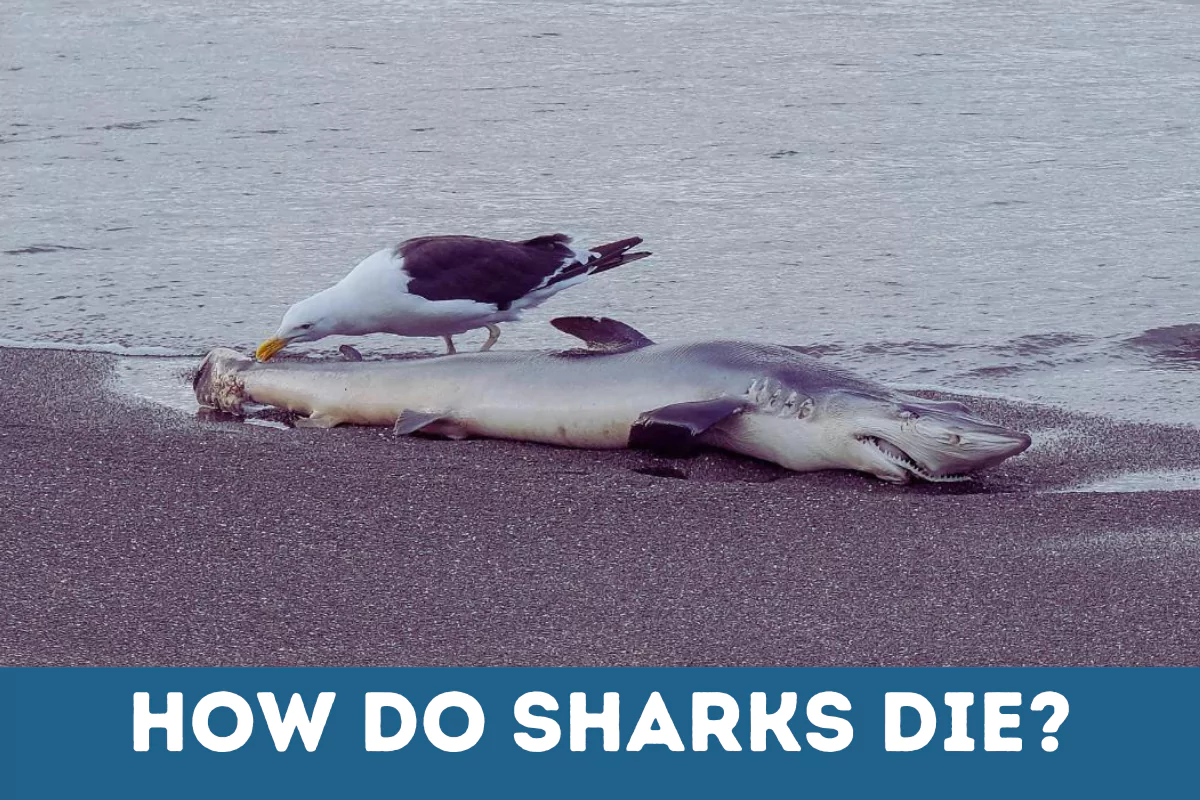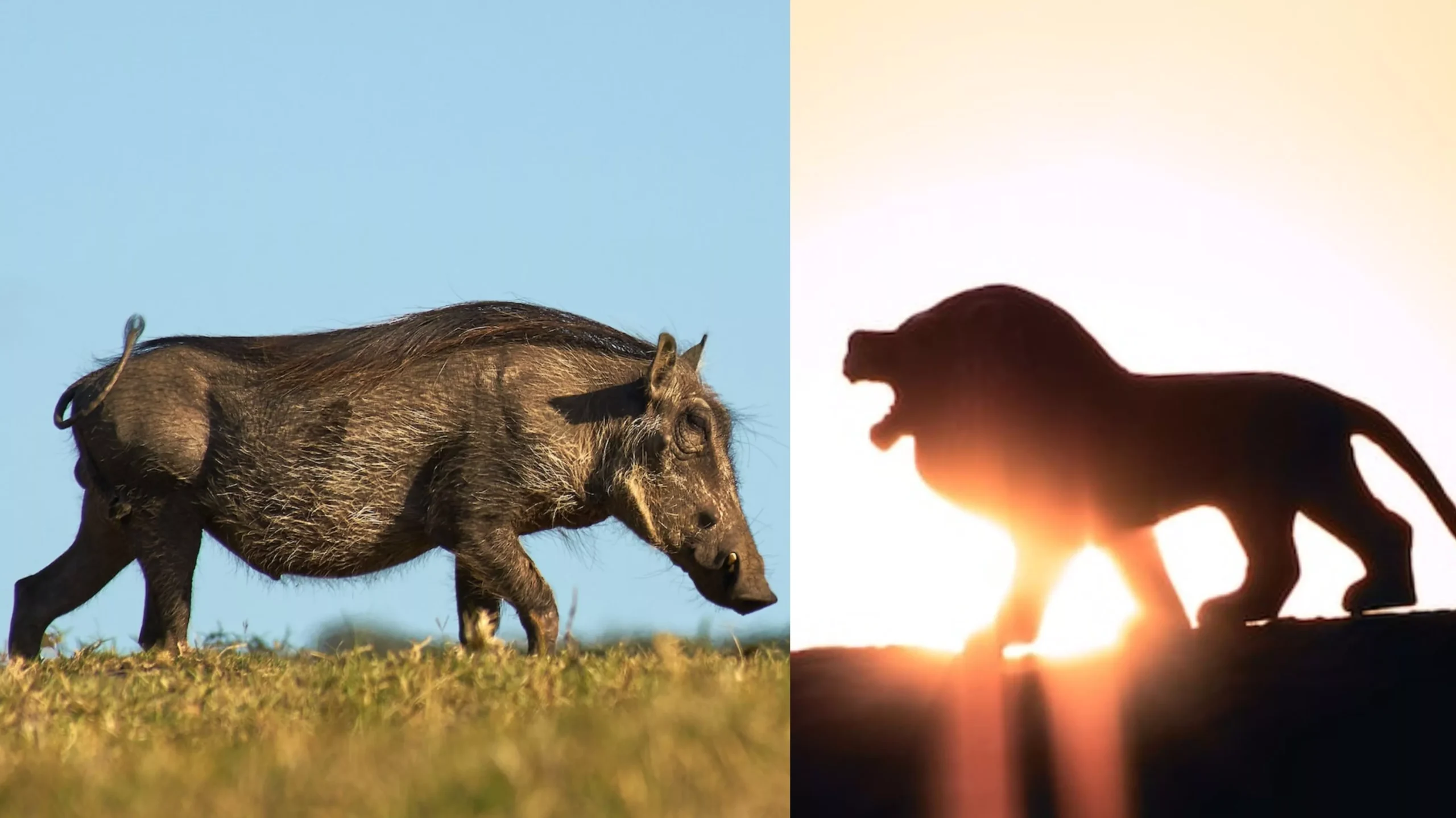Sharks are one of the most feared and fascinating creatures of the deep. Their sharp teeth, elegant physique, and incredible hunting skills have captivated humans’ attention for centuries.
However, despite their reputation as apex predators, sharks are not invincible. Just like any other living creature, they, too, can die. Everything that is born will die one day. That’s nature’s law.
But how exactly do sharks die? Do they die of old age, or do other predators hunt them? In this article, we will explore various factors that contribute to shark mortality.
How Do Sharks Die?
In the field of marine biology, the investigation of shark mortality is a complicated and multidimensional subject. Environmental changes, human activities, and other natural causes, including disease and predation by other marine species, are some of the main variables that affect shark mortality.
Understanding how sharks die is crucial in developing conservation strategies to protect these creatures.
Research shows that approximately 100 million sharks are killed yearly, shockingly around 7% of the shark population. Due to this, there has been a 70% global reduction in the shark population in just the last 50 years.
Let’s see some of the main contributors to shark deaths:
Human Activities:
Most sharks will often die from human activities such as hunting, commercial fishing, and accidental capture in fishing nets. These practices have led to a decline in shark populations worldwide and put many shark species almost at the brink of extinction.
Sharks are hunted for their fins (finning) and meat, leading to overfishing and endangering their survival.
“Shark Finning” is a cruel practice that involves catching sharks, removing their fins, and then throwing them back into the ocean only to perish. Some South Asian nations, including China and Taiwan, are known for their love of shark fin soup, which is responsible for the annual deaths of approximately 75 million sharks.

Also, commercial fishing operations unintentionally capture sharks while targeting other species like tuna or swordfish. This is called bycatch, and it affects millions of sharks annually.
If only we can curb our destructive behavior toward them and preserve their habitats, we can ensure that these magnificent species can survive in our oceans for generations.
Predators:
Sharks, being the apex predators of their habitat, hardly have any competition and are often viewed as invincible creatures. However, even the strongest predators can die in a variety of ways. When they get old, sick, or injured and had to encounter orcas, chances are that the shark will become a meal to the orcas.
Natural causes:
Most shark species have a lifespan of about 40 years, and as they get older, their bodies are more prone to illnesses and infections. Therefore, if they cannot get enough prey or face competition from other ocean predators, they may perish from malnutrition or starvation.
Even though there are fewer deaths from natural causes than from human-caused reasons like overfishing and habitat degradation, they nonetheless play a significant influence in controlling shark populations.
Also Read: Do Orcas Have Eyes?
Climate Change:
It is also apparent that environmental causes like pollution and fluctuations in water temperature are killing off a lot of sharks. If the ocean temperature rises, it may result in lower oxygen levels and, thus, respiratory issues for sharks, ultimately leading to their death.
Sharks depend on outside factors to control their body temperature because they are cold-blooded animals. Therefore, changes in water temperature will have a significant impact on shark metabolism and behavior.
The gradual rise in sea surface temperatures brought on by climate change has also altered ocean currents and the availability of prey for sharks. Additionally, the oceans’ acidity levels have recently grown because of excessive carbon dioxide emissions, endangering coral reefs and other marine environments that are crucial shark feeding grounds
What Is A Shark’s Life Expectancy?
Sharks can be spotted in various ocean environments, ranging from mysterious depths to coral-covered shallows near the coast. They are extremely important in controlling fish populations across different ecosystems.
Over 500 species of sharks are out there, and most of them live for about 20 to 30 years. However, there are a few exceptions, such as the Greenland shark, which has an astounding lifespan of about 272 years!
How Do Great White Sharks Die?
Great White Sharks are one of the most fierce sharks and can live around 70 years if they can avoid human encounters for that long. Nowadays, their numbers are decreasing due to captivity and climate change.
Occasionally, these are also targeted by orcas and stingrays.
How Do Whale Sharks Die?
Not to be confused with whales. Whale sharks don’t have many predators, but when they are still babies, they are often predated by some of the ocean’s apex predators, such as great whites, tiger sharks, and orcas.
Even though their hunting is illegal, in a few places, like China, they are still hunted and killed for their meat, fins, and skin.

How Do Hammerhead Sharks Die?
Hammerhead sharks are endangered shark species, as there are only a few hundred of them remaining in today’s oceans.
Despite their frightening appearance, hammerhead sharks have a lot of competitors and predators, such as the great white, orca, and tiger shark.
However, the biggest enemy of all is the human. As they have large fins, they are targeted by the finning industry, and sometimes these sharks also get caught in commercial fishing nets and lines.
Do Sharks Die Outide Of The Water?
Sharks are fish, not marine mammals. Thus they do not have lungs and rely on their gills to breathe underwater. Which means they cannot breathe in air and won’t be able to survive on land.
To breathe correctly, most sharks require a continual flow of water across their gills. When they are taken out of the water, their gills don’t get enough oxygen which can cause them to suffocate and die within minutes.
Note: Remember that if you come into contact with one of these animals, you should treat them with respect and care.
Final Words:
As apex predators, sharks play an important role in maintaining the ocean balance by regulating the populations of their prey species. Any reduction in shark populations will impact the entire food chain.
So, it is essential to address issues like overfishing and environmental degradation due to climate change urgently if we want to protect sharks and other marine species from its devastating effects. And there is a great need to develop effective conservation efforts and protect these magnificent species from extinction.








